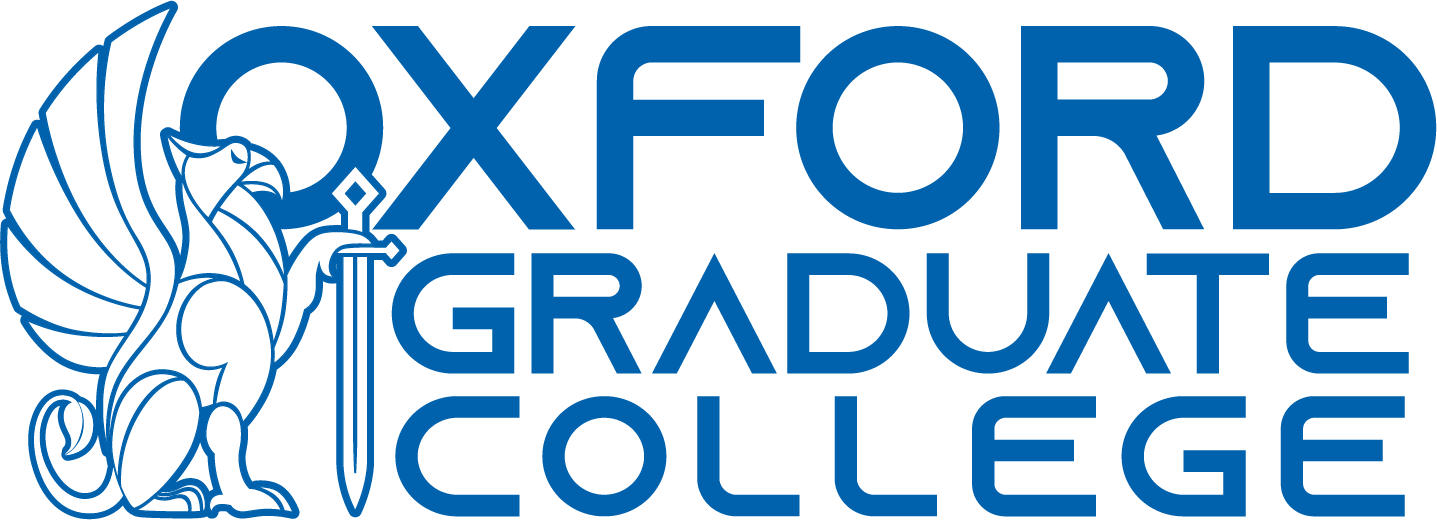
PROGRAMME SPECIFICATION
NAME OF PROGRAMME:
GRADUATE DIPLOMA- BUSINESS MANAGEMENT
Philosophy
The Graduate Diploma Level 6 Business Management programme provides a comprehensive and flexible education in business management. It is concerned with the successful operation of all types of organizations, including start-ups, large corporations, social enterprises and non-profits. The programme will provide students with a broad introduction to key principles and practices in business management, which examine accounting, marketing, finance, strategy and entrepreneurship to enable students to become familiar with the core issues concerning planning, organizing, leading and controlling activity in the context of all organizations. This programme is highly relevant for students considering embarking on a managerial career in a range of private, public and third sector organizations. Due to the wide range of topics studied, it will also be suitable for those considering working in a variety of different sectors in the UK and internationally. Students will be able to appreciate the diversity, processes, barriers and facilitators of success in dynamic organizations. The programme makes use of state of the art theoretical frameworks and case studies, while being alert as to how they can be applied in a ‘real world’ setting. The range of bespoke and contemporarily relevant optional modules will assist students in developing and deepening their knowledge in areas which are relevant to their interests and future career plans.
Information on Award
| Final Award | Graduate Diploma- Business Management |
| Programme Title | Graduate Diploma- Business Management |
| LEVEL | 6 |
| Duration of Course | Suggested completion time 18 Months.
Can be completed in a shorter time. |
| Entry Requirements | Applicants must:
· Possess at minimum any related Associate Degree in the relevant field. · EDUQUAL Level 5 Diploma · RQF/QCF/NQF Level 5 Diploma · SCQF Level 8 Diploma · EQF/FHEQ Level 5 Diploma * Recognition of Prior Learning will be considered |
| CREDITS | 180 |
| Major pathways within the course – Where course can lead to different areas of emphasis | Completion of the course can encourage participants to pursue further studies into:
· MSc in Business Management · MSc in Human Resource Management · Postgraduate Diploma in Project Management · Postgraduate Diploma in Executive Management · Postgraduate Diploma Logistics & Supply Chain Management |
| Targeted occupations for graduates | After completion of the course, graduates can serve in organizations in positions as:
· Team leaders · Supply Chain Planner · Production manager · Production Operative, Supervisor, or Manager · Business Manager · Business Analyst |
Programme Aims
| The main aims of the Graduate Diploma in Business Management are to: | · Provide you with a detailed understanding of the key concepts and theoretical frameworks in business management.
· Provide you with insight into how business management theory operates in ‘real world’ contexts. · Enable you to become aware of the diversity of the business management field. · Develop your understanding of the importance of business management in sustaining and enhancing organizations. · Provide insight into how business management varies in different organizational and geographical contexts. · Raise awareness of the latest trends in business management. · Develop key business skills which are important in developing your career. |
The Learning Outcomes
| On completion of this program, participants should be able to:
|
· To critically review, consolidate and extend a systematic and coherent body of knowledge.
· Critically evaluate concepts and evidence from a range of resources. · Transfer and apply subject-specific, cognitive and transferable skills and problem solving strategies to a range of situations and to solve complex problems. · Communicate solutions, arguments and ideas clearly and in a variety of forms. · Exercise considerable judgement in a range of situations. · Assess issues and developments in management practice and propose creative solutions using appropriate business and management frameworks and tools and principles of human dignity, the common good and integral human development. |
Programme Structure and Requirements
| UNIT TITLE | STRATEGIC LEADERSHIP |
| TQT (Hours) | 200 |
| UNIT AIM & SUMMARY | This unit provides an in-depth understanding of the key principles and practice of leadership This will enhance the individuals’ knowledge, skills and attributes to effectively engage in the role and responsibilities required of an effective team player and leader of a team; being proactive in innovation and improvement to inform strategy and business planning within the organisation. |
–
| UNIT TITLE | PROJECT AND LOGISTICS MANAGEMENT |
| TQT (Hours) | 200 |
| UNIT AIM & SUMMARY | The aim of this unit is to allow the learner to understand concepts of portfolio management and the associated features. The value of having a Project Management Office will also be examined and the stages of establishing and effective project management office will be considered. Learners will also examine the supply chain ecosystem and review IT frameworks appropriate for logistics and supply chain complexities. |
–
| UNIT TITLE | BUSINESS LAW |
| TQT (Hours) | 200 |
| UNIT AIM & SUMMARY | Business law influences almost every aspect of corporate and working life; from protection of physical and financial wellbeing, to enforcement of rights and responsibilities within the workplace. This unit aims to provide learners with an academic and practical awareness of these laws and to develop the skills necessary to operate legally within an increasingly litigious business environment. Aim of this unit is to introduce the importance of law in businesses and organisations including main features of English Legal systems, contract laws, sales of goods acts and credit transactions as well as intellectual property law. This unit will develop analytical skills in law and encourages their application to business contexts. |
–
| UNIT TITLE | STRATEGIC MANAGEMENT |
| TQT (Hours) | 200 |
| UNIT AIM & SUMMARY | The aim of this unit is to examine the process of strategic management, analyze approaches to strategy formulation and examine approaches to strategy implementation. Strategic Management is an integrative capstone unit that seeks to provide a comprehensive look at organizations. Although it will draw upon many of the business courses that you have been exposed to, it does go beyond merely tying together the various functional courses you have had. This unit will also to develop learners’ understanding of strategic and change management models, as well as the ability to review strategic plans, to propose strategic options, to create implementation plans and to lead organisational changes. |
–
| UNIT TITLE | E-BUSINESS |
| TQT (Hours) | 200 |
| UNIT AIM & SUMMARY | This unit aims to develop students’ abilities to analyse and evaluate e-business applications, as well as design e-business models. We focus on the strategic, managerial, operational and technical factors in the development of an organisation’s e-business competencies and capabilities. We investigate current business and technology trends including the individual, business and societal implications of e-business. The course makes extensive use of current case studies and gives students the opportunity to design new e-business models and applications. The world of business is undergoing a radical change. Trends in market place competition on one hand and the advent of the Web on the other hand, have created a brand new landscape within which business is conducted. e – Business enterprises conduct themselves using agile and flexible business models and processes, transform themselves continuously to meet challenges and opportunities, participate in opportunistic alliances and virtual organisations. |
–
| UNIT TITLE | GLOBAL LOGISTICS AND SUPPLY CHAIN MANAGEMENT |
| TQT (Hours) | 200 |
| UNIT AIM & SUMMARY | This unit aims to allow the student to develop an appreciation of the issues to be addressed when dealing with the complexities of managing the global sourcing of materials and components, the globalisation of manufacturing operations, and meeting the needs of the global customer. |
–
| UNIT TITLE | INTERNATIONAL HUMAN RESOURCE MANAGEMENT |
| TQT(Hours) | 200 |
| UNIT AIM & SUMMARY | The aim of this unit is to provide students with the context, theory and practice of international human resource management (HRM), specifically of HRM in the international arena. International Human Resource Management (IHRM) is about the worldwide management of human resources. IHRM can be traced back to the growth of international business operations and the development of multinational firms with their formal and informal approaches to personnel administration and management. The purpose of this course is to provide the students with knowledge and understanding of IHRM as well as the ability and skills to analyse IHRM in contemporary firms. |
–
| UNIT TITLE | CHANGE MANAGEMENT & INNOVATION |
| TQT (Hours) | 200 |
| UNIT AIM & SUMMARY | The aim of this unit is to develop learners’ understanding of classic and contemporary theories of change management, innovation and how they apply to contemporary organisations in the globalised world, with the identification and use of change models. Learners will understand the personal characteristics of change agents as well as the evaluation and development of leadership skills to meet current and future change management and innovation roles. |
| UNIT TITLE | Start-up & Forecasting |
| TQT(Hours) | 200 |
| UNIT AIM & SUMMARY | This unit is to develop learners’ understanding of performance management techniques. Learners will compare the systems used in profit making and non-profit making organisations. The learners will gain a working knowledge of performance measurement reporting and specialist cost and management accounting techniques. The aim of this unit is to develop learners’ understanding of investment theories, securities and market analysis. The learners will gain an understanding of the key legislation and regulation affecting the financial services industry. |
–
| UNIT TITLE | FINANCE |
| TQT (Hours) | 200 |
| UNIT AIM & SUMMARY | The unit aims to will examine how people make predictable and repeatable mistakes in financial decision- making. This unit introduces the fundamental concepts of finance theory and tools of financial Decision-making in the context of the institutional environment. |
| UNIT TITLE | HEALTH AND SAFETY LAW, REGULATION. |
| TQT(Hours) | 200 |
| UNIT AIM & SUMMARY | The aim of this unit is to give learners an understanding of international frameworks for health and safety legislation and regulation, how these frameworks are set, and the subsequent obligations on organisations to comply. The learner will explore the role played by industry, professional bodies and media communities to influence the promotion of positive health and safety outcomes locally, nationally and globally. |
| Research Skills | Research Project |
| Description | A comprehensive research project encompassing all of the knowledge and skills gained throughout the duration of the programme. |
Information about Assessment Regulations
Participation and completion of all assessments are mandatory in order to obtain an overall final grade for the unit.
The use of any of the following Assessment Methods may be utilized in the individual assessments.
- Course Assignments
- Self-study assignments
- Online Quizzes
- Portfolio
